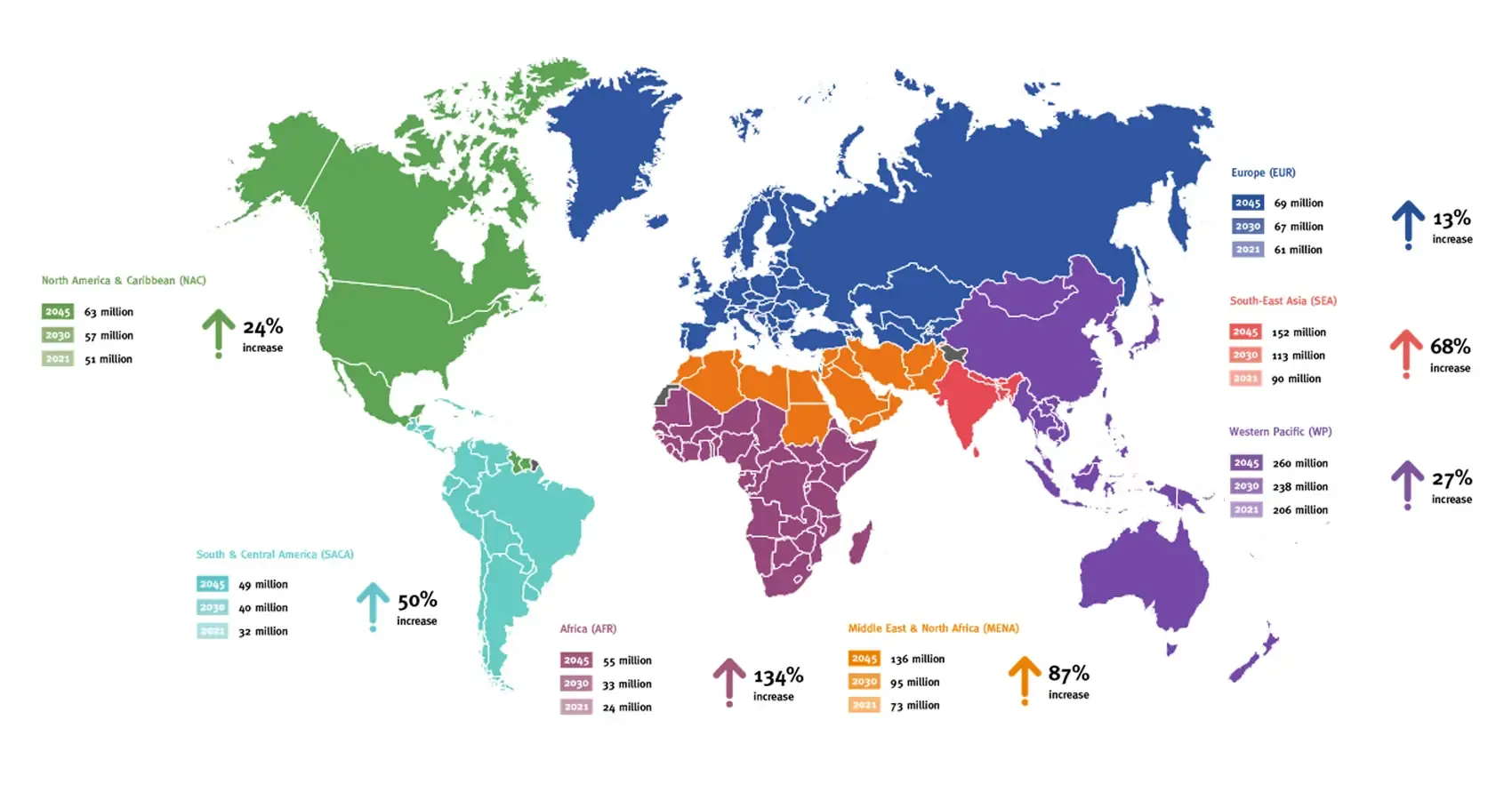Diabetes is already a disease that affects more than 830 million people in the world, according to data from 2022, and was responsible for 1.6 million deaths in 2021. In addition, another 530,000 deaths were linked to complications such as kidney disease.These figures reflect a global health crisis that we cannot ignore.
What is promoting this increase?
The American Diabetes Association (ADA) and the World Health Organization (WHO) identify several key factors behind the increase in cases of type 2 diabetes, including:
1. Unhealthy diets: Excessive consumption of processed foods and sugary drinks significantly increases the risk of developing type 2 diabetes. Replacing these drinks with water is a simple but effective step for prevention.
2. Sedentary lifestyle: According to WHO, one third of adults do not perform the recommended minimum physical activity (150 minutes per week).Lack of exercise contributes to the development of the disease.
3. Overweight and obesity: one in eight people in the world lives with obesity, a factor that increases the risk of insulin resistance and other complications.
4. Family history: having relatives with type 2 diabetes raises the chances of developing it.
Diabetes not only affects the health of those who suffer from it, but also has a significant impact on the global economy, especially in low and medium income countries.High costs of essential medicines such as insulin and lack of access to adequate care aggravate the situation.
WHO general director, Tedros Adhanom Ghebreyesus, calls governments and communities to strengthen health systems, implement policies that promote healthy lifestyles and guarantee access to affordable treatments.
As a community, we can also contribute.Informing, sharing experiences, and supporting each other are essential steps to face this crisis.While the figures are alarming, together we can generate a real change.
💙Let us commit to take care of our health and that of those around us.Because every small action counts.💙


